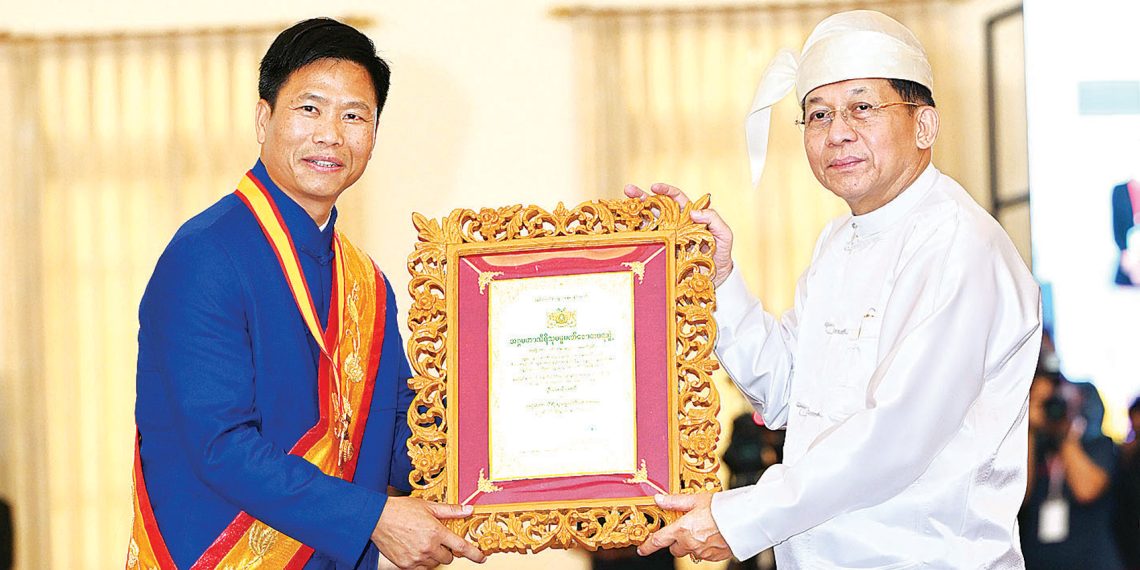Fighting on China's border in Shan State reveals the size of the cyber scam business
According to the ethnic armies that launched the offensive on the border region, the business is worth US$ 14 billion annually, controlled by four Chinese clans together with Myanmar’s military. China recently asked the ruling junta to shut down call centres where about 100,000 people are allegedly held in conditions of modern slavery.
Yangon (AsiaNews) – The offensive launched last October by ethnic militias in areas on the Myanmar-China border has revealed the size of Myanmar’s cyber scam industry.
This kind of business found a home in the country with the support of its generals, who took over in a coup d'état on 1 February 2021; however, since then, the military has found it harder to maintain control in the Kokang border region.
According to Peng Deren, commander of the Myanmar National Democratic Alliance Army, which coordinates the forces of three local armed groups in the northern Shan State, large number of people have been forced to work in conditions of modern slavery in call centres that target people in China as well as other countries in Asia, including neighbouring Thailand and Myanmar itself.
Online scam syndicates are earning up to US$ 14 billion a year, Peng Dareng said, under the control of four Chinese clans working with Myanmar’s military junta that is involved in a civil war since it took over nearly three years ago.
With the capture of Laukkai, a city mostly inhabited by ethnic Kokang, a network involving 100,000 slaves was dismantled, 41,000 of whom were handed over last year to Chinese authorities at China’s request.
Others fled the fighting in recent weeks, but according to resistance sources, those responsible for the criminal network were evacuated by Myanmar military helicopters before the fall of the city and the surrender of hundreds of soldiers.
An indirect confirmation of the extent of this illegal business and the determination of Chinese authorities to eradicate it (by exerting strong pressure on Myanmar, one of its main suppliers of raw materials as well as a major trading partner), was the recent announcement of at least 70,000 arrests China itself.
Thai authorities report that more than 500 Thai citizens were among the foreigners rescued, who were repatriated during the fighting. Of these, 174 were certainly victims of human trafficking.
The syndicates who run the racket – Bai, Wei and two Liu clans – are protected by the junta. Since the latter took over, they resumed large-scale opium production that saw Myanmar claim the top rank in world rankings last year.
Facing serious military challenges, the regime has difficult choices ahead. A virtual international pariah (with a few exceptions), it must decide whether to accept Chinese demands to eradicate a lucrative but socially dangerous activity, or risk worsening relations with one of its few supporters, the other being Russia.
10/07/2024 17:01
13/03/2023 18:13







.png)










